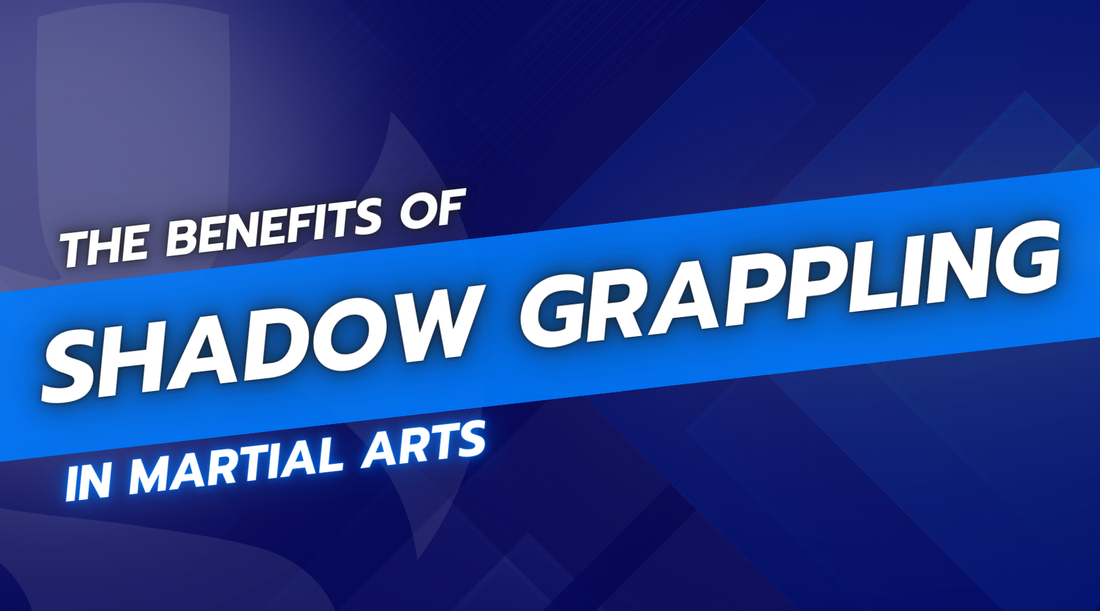
The Benefits of Shadow Grappling in Martial Arts
Share
Shadow grappling is an often overlooked but highly effective training technique in martial arts. Unlike traditional grappling, which requires a partner, shadow grappling involves practicing grappling moves solo, mimicking the actions of grappling an invisible opponent. This method of training can dramatically improve a martial artist's skills, offering a range of benefits that go beyond the physical aspects of the sport. Let’s dive into why shadow grappling deserves a spot in your training routine.
What is Shadow Grappling?
Shadow grappling is a solo practice where martial artists perform grappling techniques without a partner, simulating the movements and scenarios they would encounter in a real match. This allows practitioners to focus on their form, refine their techniques, and internalize movements without the unpredictability of a live opponent. Think of it like shadow boxing, but for grappling—it's all about muscle memory, fluidity, and perfecting your moves.
Historical Context of Shadow Grappling
While shadow grappling might seem like a modern innovation, it has roots in traditional martial arts practices. Historically, martial artists have used solo drills to sharpen their skills, whether it was katas in karate or solo drills in judo. Over time, these practices evolved, leading to the specific development of shadow grappling as a focused training method for grapplers in arts like Brazilian Jiu-Jitsu, judo, and wrestling.
Improving Technique and Form
One of the primary benefits of shadow grappling is the improvement of technique and form. Without the resistance and interference of a partner, you can slow down your movements, break down each technique, and ensure that every detail is correct. This can be especially beneficial for beginners who are still learning the basics, as it allows them to repeat moves without the pressure of live sparring.
Enhancing Muscle Memory
Repetition is key to mastering any martial art, and shadow grappling offers the perfect platform for repetition. By consistently practicing moves solo, you develop muscle memory, which is crucial for executing techniques instinctively in live scenarios. Shadow grappling allows for endless repetitions, helping to embed these movements deeply into your muscle memory.
Boosting Mental Focus and Visualization
Shadow grappling isn’t just a physical exercise; it’s also a mental one. It requires a high level of focus and the ability to visualize an opponent and the unfolding scenario. This mental aspect trains your brain to anticipate moves, understand angles, and plan strategies, making it a powerful tool for mental conditioning in martial arts.
Developing Speed and Agility
Speed and agility are essential in grappling. By practicing movements in isolation, you can gradually increase your speed and precision. Shadow grappling allows you to experiment with transitions and movements at full speed without the physical constraints of an opponent, giving you the freedom to refine your timing and fluidity.
Increasing Stamina and Endurance
Shadow grappling can also serve as an excellent cardio workout. As you practice, your heart rate increases, and over time, this can significantly boost your stamina and endurance. This aspect of shadow grappling is particularly beneficial because it simulates the physical demands of a real match, helping you build the endurance necessary to outlast opponents.
Building Confidence
There’s something inherently empowering about mastering a technique on your own. Shadow grappling can build confidence by allowing you to perfect your moves in a controlled environment. This solo practice can help you feel more prepared and self-assured when stepping into live sparring or competition.
Versatility and Accessibility
One of the greatest advantages of shadow grappling is its versatility. It requires no equipment and can be practiced almost anywhere—whether you’re in a gym, at home, or even outdoors. This accessibility makes it easy to incorporate into your daily routine, ensuring that you can keep up with your training even when a partner isn’t available.
Shadow Grappling for Injury Prevention
Practicing grappling moves without a partner can also help in reducing the risk of injuries. It allows you to work on control, precision, and proper technique without the immediate physical strain of engaging with another person. This can be particularly useful for those recovering from an injury or those looking to maintain their skills without the high impact of full sparring.
Incorporating Shadow Grappling into Training Routines
If you’re new to shadow grappling, start by integrating it into your warm-up or cool-down sessions. Focus on basic moves and gradually increase the complexity as you become more comfortable. Over time, you can start to incorporate more advanced techniques, chaining movements together to simulate real-match scenarios.
Common Mistakes to Avoid
While shadow grappling offers numerous benefits, it’s not without its pitfalls. Common mistakes include rushing through techniques, neglecting proper form, or failing to visualize a realistic scenario. To get the most out of your practice, slow down, pay attention to detail, and always visualize your opponent's movements and responses.
Advanced Shadow Grappling Techniques
For more experienced practitioners, shadow grappling can be taken to the next level by adding layers of complexity. This could include practicing transitions between submissions, working on counters, or even shadow grappling with a focus on defense. The key is to continually challenge yourself and expand your range of techniques.
Final Thoughts
Shadow grappling is a powerful tool in the martial artist’s arsenal. It not only improves technique and form but also builds muscle memory, mental focus, and confidence. Its versatility makes it accessible to practitioners at any level, and its low-impact nature aids in injury prevention. Whether you’re a beginner or a seasoned martial artist, incorporating shadow grappling into your training routine can provide significant benefits.
